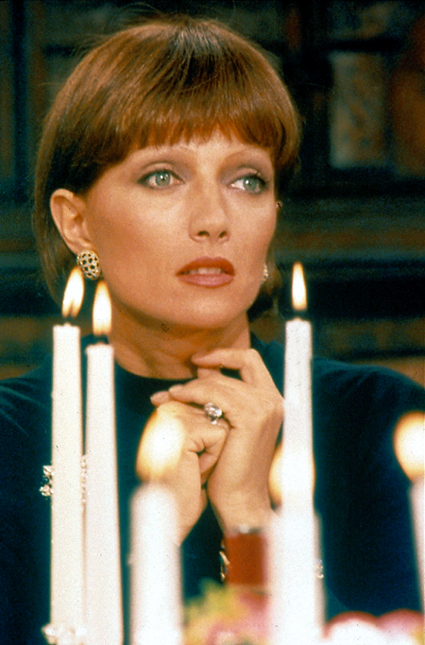

Reviews of Recent Independent, Foreign, & Documentary Films in Theaters and DVD/Home Video
Directed & Sound Effects by: Luis Buñuel. Produced by: Serge Silberman. Written by: Buñuel & Jean-Claude Carriere. Director of Photography: Edmond Richmond Edited by: Hélène Plemiannikov. Released by: Rialto Pictures. Language: French with English subtitles. Country of Origin: France. 101 min. Not Rated. With: Fernando Rey, Jean-Pierre Cassel, Paul Frankeur, Stéphane Audran, Julien Bertheau, Delphine Seyrig, Bulle Ogier, & Michel Piccoli.
The Discreet Charm of the Bourgeoisie is already available in a very fine two-disc DVD set from the Criterion Collection. If you have not yet seen it and can check it out in an excellent print (opening today at New York City’s Film Forum), it may mark one of the high points of the revival circuit this year. Luis Buñuel made his films for the big screen, so that all of the subtleties, dream-filled inventions, and ingenious sound effects created by the director himself can sink in. There’s something about The Discreet Charm that’s even more striking in a dark theater, where Buñuel is so confident in his style that he goes just a little further, though always with a great touch of class mixed with a wicked tongue-in-cheek sense of humor.
To try and describe the plot might be taking for granted what Buñuel is going for as six bourgeoisie assemble for dinner,
one of whom is the ambassador from the Republic of Miranda (Fernando Rey’s Don Rafael), who, with the other two men, engages in
drug deals on the side. The women include the sexy and sex-starved Stéphane Audran and bubble-headed Bulle Ogier. The characters’
main function isn’t really to adhere to a storyline, per say, as it is to just try and go about what practically comes
naturally - to sit down and have a meal while talking about ordinary concerns (pretty realistic, though not very involving). But
every time they try to eat, they are interrupted. It’s set up brilliantly near the beginning when the six sit down at a
deserted restaurant and soon realize everyone working there is in a state of mourning. Other interruptions include a fleet of soldiers
coming into a chateau to get a quick bite in between fighting, and a later gathering being played out on a stage in front of an
audience (worse yet, no one can remember their lines).
If all this sounds too outrageous or unbelievable, that’s part of the point. About halfway into the film, Buñuel decides to keep on playing elaborate, sometimes hysterically funny tricks through dream sequences, or in one case, having a dream played out within a dream. Yet there is a sense that the illusory nature inhabiting the minds of this social set - and even the thoughts of random soldiers - are not that far removed from the realities they inhabit. Amusing and surprising, the randomness of the real world interrupts the meals. This is nothing new for Buñuel, who has delighted in screwing with the audience’s heads in terms of conventional expectations. (The Exterminating Angel, where another bourgeois group does eat their meal but find they cannot leave the drawing room for days on end, comes to mind).
What even more fascinates me and still keeps me entertained on repeat viewing is how skillfully Buñuel weaves moments of class
(the characters may be a lot of things – sexually frustrated and/or oversexed, adulterous, or drug-dealers, but they’re intelligent)
with darker moments – the revelation of a bishop-turned-gardener’s horrible memory or the powerful depiction of a lieutenant’s
childhood reminiscence. And through the interlocking dreams, moments of symbolism (bugs pop out at one point, like in his 1928 silent
short, Un Chien Andalou), and political points (a terrorist tracking Rey’s character), it’s also extremely funny, but in a
much more crafty, and less sophomoric, way than Monty Python.
Jack Gattanella
|